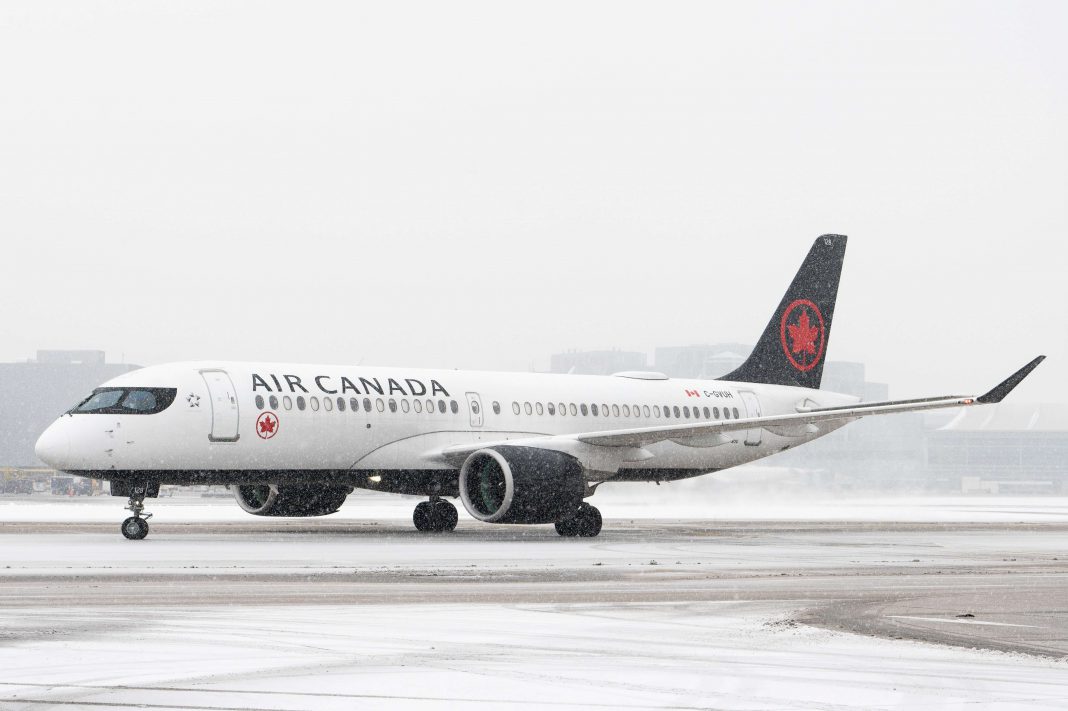Air Canada, the national carrier of Canada, has signed a firm order with Airbus for five more latest generation single-aisle A220-300s on the fifth anniversary since taking delivery of its first A220 in December 2019. This follows an initial order in 2016 for 45 A220-300s and a reorder in 2022 for 15 more. Including this latest reorder, Air Canada’s total firm orders for the A220-300 stands at 65 aircraft.
John Di Bert, Executive Vice President and Chief Financial Officer at Air Canada said: “The A220 has delivered on its promises for Air Canada in its five years in service. It has allowed us to open new routes and better serve existing routes with an aircraft that has the right economics to support our profitable growth strategy. It is also very popular with customers. We are pleased to add an additional five of these aircraft, built in Mirabel, Quebec, right up the road from our Montreal headquarters and to further support Canada’s aerospace sector.”
Benoît de Saint-Exupéry, EVP Sales Commercial Aircraft at Airbus said: “This is Air Canada’s third order for the A220 in a few years. We are committed to working closely with the flag carrier as we support its fleet renewal programme. The A220 is the most efficient aircraft in its size category, offering superior comfort with a spacious cabin and the range to fly numerous destinations on the carrier’s network.”
Air Canada was the A220-300 launch operator in North America in January 2020 and has since operated its A220 fleet to more than 70 destinations. The A220 is assembled in Mirabel, Quebec, being an essential part of the renowned Canadian aerospace sector.
Combining the longest range, lowest fuel consumption and widest cabin in its class, the A220 is the most modern airliner in its size category, carrying between 100 to 150 passengers on flights of up to 3,600 nautical miles (6,700 km).
The aircraft is powered by Pratt & Whitney’s latest-generation GTF engines and offers a 25 percent reduction in fuel consumption and carbon emissions per seat. As with all Airbus aircraft, the A220 is already able to operate with up to 50 percent Sustainable Aviation Fuel (SAF). Airbus aims for all its aircraft to be capable of operating with up to 100 percent SAF by 2030.
As of the end of November 2024, Air Canada’s fleet is made of 134 Airbus aircraft, including the A320 Family aircraft, the A330 Family aircraft and the A220-300 aircraft. Air Canada has an order for 26 A321XLRs.
As at the end of November 2024, Airbus had received close to 900 orders from 32 customers for the A220, of which almost 380 have been delivered. The A220 is already in successful service with 23 operators worldwide. The fleet is currently flying on more than 1,500 routes and more than 460 destinations across the globe, confirming its leading position in the small single-aisle market.
“The A220 for us is an aircraft that is very versatile and very efficient, which only adds to the pride we have to be flying an aircraft built by Canadians,” said Alexandre Lefevre, Vice President, Network Planning – North America and Scheduling at Air Canada. “The future of the A220 at Air Canada is very exciting. It’s a future of growth that will bring with it new routes and an excellent passenger experience, making it a cornerstone of Air Canada’s narrowbody fleet renewal.”
“The efficiency and economics of the A220 have enabled Air Canada to expand its network across North America with routes that were simply not commercially viable with the previous generation of aircraft,” Alex added.
“The versatility of the aircraft allows it to do both short or long-haul segments across North America and to some Caribbean destinations,” he added.
A hybrid occupying a critical niche between a regional and regular narrow-body jet, Air Canada’s A220 is configured with a choice of two cabins, with 12 seats in Business Class and 125 seats in Economy. It features more personal space, larger windows, full-colour LED ambient and customizable mood lighting. Onboard Air Canada’s fleet, the passenger experience is elevated with the addition of a Panasonic in-flight entertainment system at every seat, as well as satellite-based, high speed Wi-Fi access.
“We are proud that Air Canada has not only ordered the A220 but also come back for more over the years as this demonstrates the value the aircraft is bringing with economic performance and passenger appreciation of its innovative cabin. This Canadian-designed and built-aircraft has also positively contributed to progress in reaching ambitious environmental goals for Air Canada,” said Benoît Schultz, CEO at Airbus Canada. “Congratulations to Air Canada on five years of achievements and thank you for the continued trust in Airbus teams in Canada, North America and worldwide.”


